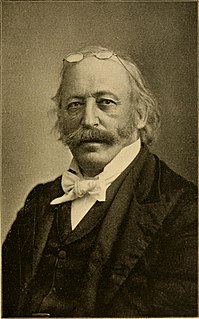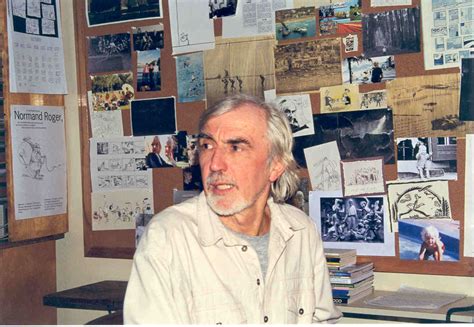A Quote by Virginia Woolf
If Shakespeare had never existed, he asked, would the world have differed much from what it is today? Does the progress of civilization depend upon great men? Is the lot of the average human being better now that in the time of the Pharaohs?
Related Quotes
People are now starting to explain the Cold War. Even in the crises at that time the survival of millions of people was at stake. And we (the USA) had to threaten the other super power with retaliation to prevent it from doing something to us. Today we live in a world in which a lot of things are in flux. That creates a lot of fear. But it is also a time of great opportunity. And I would call on today's statesmen to not allow their thinking to be directed by fear.
The human species does not necessarily move in stages from progress to progress ... history and civilization do not advance in tandem. From the stagnation of Medieval Europe to the decline and chaos in recent times on the mainland of Asia and to the catastrophes of two world wars in the twentieth century, the methods of killing people became increasingly sophisticated. Scientific and technological progress certainly does not imply that humankind as a result becomes more civilized.
I'm a better musician now, and I rarely practice because age has taught me the value of economy. And I think I'm a better writer now because I don't waste as much time, dilly-dallying and sassafrassin' and sloop and sloppin' and frying eggs. When you start writing, half the time you're just saying howdy to the page. My process now is a little more lean and muscular. I don't waste a lot of time. When I had kids, I learned how much time I had before, and how much time you actually need to do something. If you don't have time, you'll just do it and get it done.
We humans have existed in our present form for about a hundred thousand years. I believe that if during this time the human mind had been primarily controlled by anger and hatred, our overall population would have decreased. But today, despite all our wars, we find that the human population is greater than ever. This clearly indicates to me that love and compassion predominate in the world. And this is why unpleasant events are "news"; compassionate activities are so much a part of daily life that they are taken for granted and , therefore, largely ignored.
They had stopped now and he gave a glance up at the sky, through the trees, as though to see how much time was left. Amber, watching him, was suddenly struck with panic. Now he was going--out again into that great world with its bustle and noise and excitement--and she must stay here. She had a terrible new feeling of loneliness, as if she stood in some solitary corner at a party where she was the only stranger. Those places he had seen, she would never see; those fine things he had done, she would never do. But worst of all she would never see him again.
The average human being spends three years of life going to the toilet, though the average human being with no physical toilet to go to probably does his or her best to spend less. It is a human behavior that is as revealing as any other about human nature, but only if it can be released from the social straitjacket of nicety.
On the future of the U.S., or of Western civilization in general, I tend to be quite pessimistic. I would say that today I see most of the symptoms of societies on the brink of collapse, not just in the U.S., but in the tightly interconnected societies of Western civilization - now essentially world civilization.
Had today's technophobic zealots [environmental activists] been in charge in previous centuries, we would have to roll human progress back to the Middle Ages - and beyond, since even fire, the wheel and organic farming pose risks, and none would have passed the "absolute safety" test the zealots demand. Putting them in charge now would mean an end to progress, and perpetual deprivation for inhabitants of developing nations.
But the female mind has demonstrated a capacity for all the mental acquirements and achievements of men, and as generations ensue that capacity will be expanded; the average woman will be as well educated as the average man, and then better educated, for the dormant faculties of her brain will be stimulated to an activity that will be all the more intense and powerful because of centuries of repose. Woman will ignore precedent and startle civilization with their progress.
It is my experience that marriage does not make one happier. It destroys the illusion that has been the essence of one's previous existence, that there existed something like a soul-mate. The feeling of not being understood is heightened in marriage by the fact that one's entire life beforehand had the aim of finding a being who would understand one. But isn't it better to exist without such an illusion and look this great lonely truth straight in the eye?


































